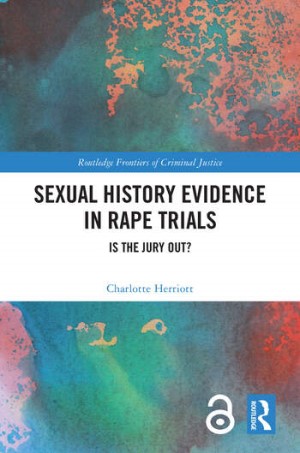
This book provides an in-depth examination of current, high-profile debates about the use of sexual history evidence in rape trials and presents original findings regarding the impact of this evidence on jurors.
The book presents findings of the first research in England and Wales that has examined how jurors interpret, discuss, and rely upon sexual history evidence in deliberations. It draws upon qualitative and quantitative findings of 18 mock jury simulation panels, to highlight the complex, nuanced and intersectional impact of this evidence. Findings highlight ongoing prejudicial impact of sexual history evidence, with jurors routinely drawing upon rape myths and stereotypes about sexual violence, to posit relevance of this evidence and undermine the perceived credibility of the complainant. These findings are embedded within broader discussions about evidential legitimacy in rape trials and use good practice observed in other jurisdictions, to make numerous recommendations for change.
Aiming to inform academic, policy and legislative discussions in this area, Sexual History Evidence in Rape Trialswill be of great interest to students and scholars of Criminal Law and Criminology, as well as policy makers and legal practitioners.